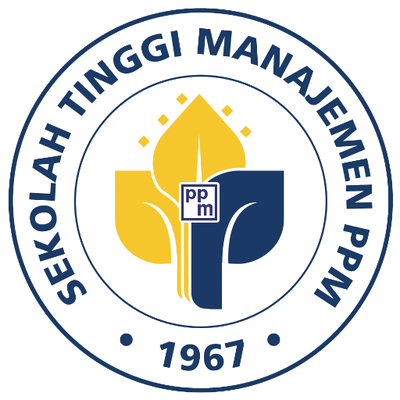FAKTOR – FAKTOR YANG MEMPENGARUHI TURNOVER INTENTION KARYAWAN PADA HOTEL BINTANG TIGA DI KOTA PADANG
Abstract
Keywords
References
As’ad, M. (2004). Psikologi Industri: Seri Ilmu Manajemen Sumber Daya Manusia. Yogyakarta: Liberty.
Bulut, C., & Culha, O. (2010). The Effects of Organizational Training on Organizational Commitment. International Journal of Training and Development.
Davoud Hayati, Charkhabi, M., Kalantari, D., & Paola, F. D. (2015). The Effect of Pay Satisfaction on Turnover Intention: Mediating Role of Job Satisfaction and Organizational Commitment.
Ghayas, M. M., & Siddiqiu, S. J. (2012). Impact of Job Satisfaction on Turnover Intentions in the Pharmaceutical Industry of Karachi. South Asian Journal of Management Sciences.
Ghozali, I., & Latan, H. (2015). Partial Least Square: Konsep, Teknik dan Aplikasi menggunakan SmartPLS 3.0 untuk Penelitian Empiris. 2nd Edn. Semarang: Badan Penerbit UNDIP.
Hair, J. F., Black, W. C., Babin, B. J., & Anderson, R. E. (2010). Multivariate Data Analysis, 7th ed. Pearson Pretince Hall. New Jersey.
Hasibuan, M. S. (2002). Manajemen Sumber Daya Manusia. Jakarta: Bumi Aksara.
Hsiao, H.â€C., Chang, J.-C., & Tu, Y.-l. (2012). The influence of hospital organizational culture on organizational commitment among nursing executives. African Journal of Business management.
Huang, W.-R., & Su, C.-H. (2016). The mediating role of job satisfaction in the relationship between job training satisfaction and turnover intentions. Industrial and Commercial Training.
Ismail, A., & Razak, M. R. (2016). Effect of Job Satisfaction on Organizational Commitment. Management & Marketing, Volume XIV.
Javad, S., & K., P. R. (2018). Differential impact of pay satisfaction dimensions on job performance and turnover intentions in pay for performance systems: The mediating role of affective commitment. Asian Journal of Empirical Research .
Juhdi, N., Pa'wan, F., & Hansaram, R. M. (2013). HR practices and turnover intention: the mediating roles of organizational commitment and organizational engagement in a selected region in Malaysia. The International Journal of Human Resource.
Luz, C. M., Paula, S. L., & Oliveira, L. M. (2016). Organizational Commitment, Job Satisfaction and their Possible Influence on Intent to Turnover.
Malek, K., Kline, S. F., & DiPietro, R. (2018). The Impact of Manager Training on Employee Turnover Intentions.
Mediana, E., Prasetya, A., & Sulistyo, C. W. (2018). Pengaruh Gaya Kepemimpinan dan Budaya Organisasi Terhadap Turnover melalui Kepuasan Kerja Karyawan Pada PT. Muara Wisesa Samudera di Jakarta.
Memon, M. A., Salleh, R., & Baharom, M. N. (2016). he link between training satisfaction, work engagement and turnover intention. European Journal of Training and Development.
Nelson, J. A., & Daniels, M. K. (2014). Leadership, Perceptions, and Turnover Intentions: Why Stay? Electronic Journal of Business Ethics and Organizational Studies.
Putri, M. N., & Rivai, H. A. (2019). Pengaruh job insecurity, kepuasan kerja, dan komitmen organisasional terhadap intensi turnover pada dosen institut teknologi padang. Jurnal Manajemen, 35 - 48.
Rivai, H. A. (2015). Link Between Justice Perceptions, Job Satisfaction, Affective Commitment, and Turnover Intent: A Survey From Private Hospitals in Indonesia. Proceedings of the Australasian Conference on Business and Social Sciences .
Saeed, I., Waseem, M., Sikander, S., & Rizwan, M. (2014). The relationship of Turnover intention with job satisfaction, job performance, Leader member exchange, Emotional intelligence and organizational commitment . International Journal of Learning and Development.
Salleh, R., & Memon, M. A. (2015). A Review on the Effects of Pay Satisfaction on Employee Engagement and Turnover: A Proposed Mediating Framework. International Business Management , 344-348.
Schmidt, S. W. (2007). The Relationship Between Satisfaction with Workplace Training and Overall Job Satisfaction. Human Resource Development Quarterly.
Shen, L. L. (2014). Can training promote employee organizational commitment? The effect of employability and expectation value. Nankai Business Review International.
Singh, P., & Loncar, N. (2017). Pay Satisfaction, Job Satisfaction and Turnover Intent.
Siwi, G., Taroreh, R. N., & Dotulong, L. O. (2016). Pengaruh Kepuasan Gaji, Promosi Jabatan, Komitmen Organisasi Terhadap Turnover Intention Karyawan RSU GMIM Pancaran Kasih Manado. Jurnal EMBA.
Srimindarti, C., Oktaviani, R. M., & Hardiningsih, P. (2017). Antecedents of Job Satisfaction and the Influence on Turnover Intention .
Subramanian, I. D., & Shin, Y. N. (2013). Perceived Organizational Climate and Turnover Intention of Employees in the Hotel Industry. World Applied Sciences Journal 22 (12), 1751-1759.
Susetyo, A. (2016). Pengaruh Job Satisfaction dan Pay Satisfaction Terhadap Turnover Intention Karyawan dengan Komitmen Organisasional Sebagai Variabel Intervening . Jurnal Fokus Bisnis.
Tnay, E., Othman, A. E., Siong, H. C., & Lim, S. L. (2013). The influences of job satisfaction and organizational commitment on turnover intention. .
Yousef, D. A. (2017). Organizational Commitment, Job Satisfaction and Attitudes toward Organizational Change: A Study in the Local Government.
Yücel, I. (2012). Examining the Relationships among Job Satisfaction, Organizational Commitment, and Turnover Intention: An Empirical Study. International Journal of Business and Management.
DOI: https://doi.org/10.34149/jmbr.v17i1.172
Indexing
JMBR Editorial Office: PPM School of Management, Jl. Menteng Raya 9-19 Jakarta 10340 Phone: 021-2300313 ext 2354

License
JMBR is using CC BY License
This work is licensed under a Creative Commons Attribution 4.0 International License.


















